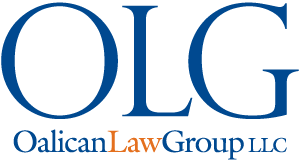Whether you have an existing estate plan or are starting from scratch, the attorneys at Oalican Law Group can assist in making sure that the plan you have in place is proper and specifically tailored to your goals and concerns. We understand that making decisions about what happens to your assets and property after your death can be difficult, and we help families to ensure that their wishes are reflected in the instruments that they execute. It is never too early, or too late, to put an estate plan into place.
Understanding some basic terms is the first step towards thinking about your own estate plan:
● Durable Power of Attorney
A power of attorney allows you to appoint a trusted family member or friend to handle important financial matters in the event that you can no longer make informed decisions for yourself. A good power of attorney is broad and not limited in the powers it identifies. Additionally, a power of attorney should appoint a primary attorney-in-fact as well as an alternate.
● Health Care Proxy
Similar to a durable power of attorney, a health care proxy appoints someone else as your agent to make health care decisions. A health care proxy is important when a patient is incapable of giving instructions to medical personnel, especially if the patient is being kept alive by life support systems if that is not consistent with the patient’s values. The proxy will permit the agent to order the withdrawal of such life support. A proxy is also important if there should be a disagreement among family members since it appoints one individual to represent you. Additional family members or friends should be named as alternates in the event the first person appointed cannot serve for any reason. It is best that the health care proxy also include a medical directive or “living will” giving your agent guidance on what your wishes would be in a given situation.
● Will
A will is a legally-binding statement of who will receive your property at your death. It also appoints a personal representative to carry out your wishes. However, the will only covers probate property, not joint property, trust property or property which names a beneficiary, like life insurance policies and retirement accounts. Simply having a will does not prevent the probate process.
● Trust
A trust is a legal entity under which one person — the “trustee” — holds legal title to property for the benefit of others — the “beneficiaries”. The trustee must follow the rules provided in the trust instrument. There are many different types of trusts for various purposes.
- An irrevocable trust is one that cannot be changed after it has been created and is often used in Medicaid or MassHealth planning.
- A revocable trust is one that may be changed or rescinded by the person who created it. Revocable trusts are often used to avoid probate or hold an inheritance for a minor child. For the most part, revocable trusts do not provide asset protection planning.
- Estate tax trusts and irrevocable life insurance trusts are used to minimize state and federal estate taxes.
- Supplemental needs trusts or special needs trusts are typically used to protect assets for a disabled person.
Contact an attorney at Oalican Law Group to begin your estate planning conversation today.
